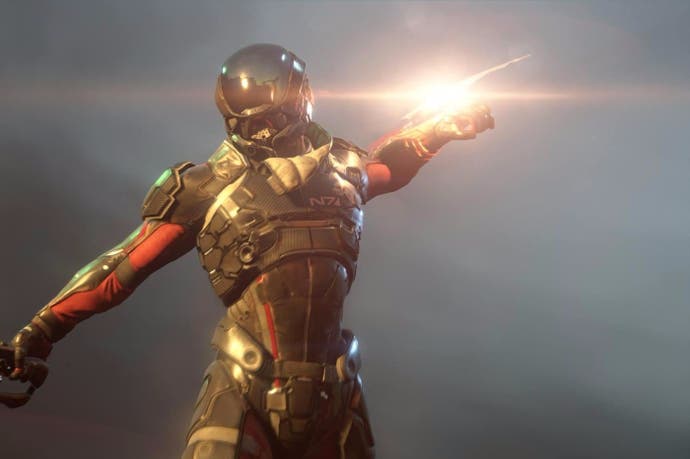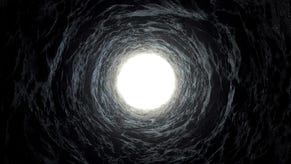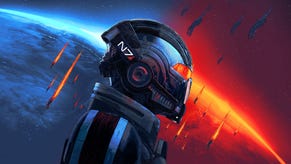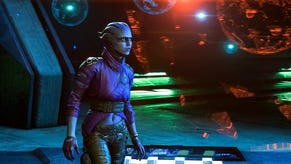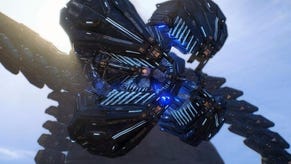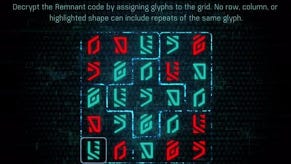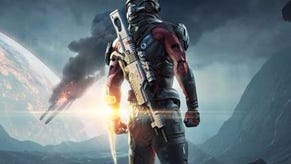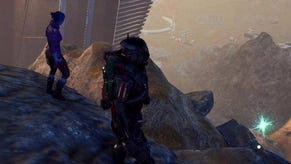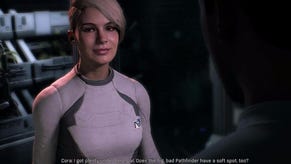How to save Mass Effect Andromeda
"What's past is prologue."
The details of Mass Effect 3's ending controversy need not be recounted, as it remains one of gaming's most pervasive disappointments. The damage it did to BioWare's reputation is still, rightly or wrongly, part of the ongoing conversation about the developer.
The long-awaited Mass Effect Andromeda needed to be near-perfect if it was to have any hope of restoring the series to the acclaim it once enjoyed, and while it's nowhere near as bad as some quarters insist, even its most ardent supporters can't escape the conclusion that Andromeda left a lot to be desired. A lot. Tonnes.
So Mass Effect is still down, but it's not out. While it hasn't won everyone back, Andromeda might well have nudged Mass Effect to a place where it could, by learning the right lessons from its past and embracing the distance it has travelled. But what are those lessons?
What's the background? The first Mass Effect was a revelation upon release. The Xbox 360, the greatest console of all time until it wasn't, was in its honeymoon period. The generational leap from the CRT era into a new age of enormous, pin-sharp, flat-screen televisions - and the requisite GPU power to drive them - represented the kind of foundational shift in gaming that hadn't been seen since the advent of textured polygons. To the contemporary observer, Mass Effect looked a bit like Final Fantasy: The Spirits Within, a film which - while rubbish - is considered something of a watershed moment in reaching, if not quite escaping, the uncanny valley. Except now it was running in real-time on a home console. The future had arrived, in glorious 720p.
That's probably why it took a few months for the cracks to show. The gunplay was a bag of arse, the conversation system was as stilted as conversation systems ever were, and driving that daft space-car around? Good lord, how did we ever cope.
Sound familiar? Aside from its combat, which retains the slickness of the sequels, Andromeda has resurrected many of the original game's issues.
Mass Effect 2 arrived in 2010, having expelled much of the guff. Its RPG systems were simplified, as were its environments. That infamous space-car, the Mako, had been consigned to the dustbin of history along with the sparse planetary surfaces it had trundled across. The game's cutscenes and conversational sequences were noticeably more cinematic, at a time when that was yet to become a dirty word. They had camera moves and walking and all sorts. Its stages were more tightly orchestrated, and the narrative device of an urgent suicide mission kept the pace up with an unprecedented sense of momentum. Mass Effect was a Ridley Scott film, and Mass Effect 2 was its jarhead James Cameron reinvention.
Mass Effect 2 was shorter, sleeker, and tonnes more fun. Accusations of dumbing-down or becoming too much of an action game bounced right off it, and to this day it's by far the collective favourite.
Andromeda introduced a lot of guff of its own. In particular, its crafting system is a convoluted mess which requires two separate screens and more currencies than a Bureau de Change. On top of that, we have to drive around planets again, this time in a vehicle that handles like a Volvo estate and has even fewer guns. Objectives are spread thinly over miles, and there aren't any Thresher Maws to break the monotony.
The result is a lot of bloat that obscures much of the genuinely good stuff Andromeda has to offer. So here's a starting point, then: any sequel to Andromeda needs to take heed of Mass Effect 2's relentless un-guffing of the format, drop any pretensions of being a Proper CRPG and get back to letting us Vasquez the shit out of impossible odds. Give us a load of big guns. Motivate us with a big red countdown to doomsday. And cut the crap.
Next? Ditch the open worlds.
Dragon Age: Inquisition did much to get Bioware's other flagship series back on track after it flunked a sequel. However, it is responsible for much of the guff in Andromeda's atmosphere. Drawing unfavourable comparisons to bloated MMOs, Inquisition focused heavily on delivering huge play areas, having been directly inspired by the open world of rival Bethesda's Skyrim, which was said to have "changed the landscape of role-playing games" by Dragon Age's executive producer Mark Darrah in an interview with Gamesindustry.biz back in 2014, citing its enormous sales figures.
He certainly had a point. Skyrim's runaway success has seen it become a mainstay in the charts for six years - an eternity as far as the games market is concerned. At one point, after it was remastered, it occupied two places in Steam's top ten. Couple that with the extraordinary critical and commercial success of The Witcher, which made the jump to open world with its third game and became regularly touted as the best RPG ever made by every Tom, Dick and Harry you never asked, and it seems like a no-brainer for BioWare to follow suit.
Except BioWare is, demonstrably, not very good at open worlds (granted, the jury's out on whether Bethesda is either). Between Dragon Age and Mass Effect it's had two cracks of that whip, and on both occasions we ended up spending a lot of time fannying around doing busywork when we should have been saving the galaxy/continent/spirit realm.
With Mass Effect 2, the first game's arduous exploration parts were replaced with curated, action-heavy vignettes. We still travelled the length and breadth of the galaxy, but every planetfall started a mission, not a sunday drive. Hub locations were compact, and packed with interesting diversions.
It demonstrated, as other BioWare games have, that there are plenty of ways to show us a big universe without having us meander through every inch of it. Andromeda 2's de-guffing should start with re-discovering them.
Now, let's talk about tone. And let's talk about Joss Whedon.
Barely any dramatic tension in Andromeda goes unbroken by a quip. This is not necessarily a bad thing. Whedon, the filmmaker behind seminal 90s sitcom Buffy the Vampire Slayer is reported to have said of superhero movies: "Make it dark, make it grim, make it tough, but then, for the love of God, tell a joke."
He was onto something, as the capacity to crack a smile (or lack thereof) has become a focal point in the ongoing war between Marvel and DC's respective movie franchises, wherein the former has a house style defined by auteur Whedon, who likes fun, and the latter is helmed by auteur-ish Zack Snyder, who apparently doesn't. As far as critical reception is concerned, they're not in the same league.
The problem with Andromeda's jokes is that few of them are particularly funny. Most are just weird, appearing out of nowhere and skewering the tone like a pool cue ripping felt. Giving levity to the serious matter of Space Bullshit is not an easy thing to do. Writers like Whedon make it look easy, but it's an extraordinarily hard thing to balance giving the audience a break with keeping them in the moment.
It's not as if Mass Effect doesn't provide enough pause to work in some frivolity. Between missions, there are extended sequences on board a spaceship where the player is encouraged to kick back with the crew, and it's in these moments where Andromeda's playfulness is given enough oxygen to work. The Tempest is host to some great character moments, like the bizarre Movie Night sequence which requires a near endless string of galaxy-spanning tasks to be completed before it can be triggered, absurdly taking fifty hours of gameplay to get the crew together on Ryder's couch in a possibly accidental but nonetheless brilliant send-up of the laborious nature of RPGs. It's a cruel joke, but it's worth the effort.
BioWare's writers have one of the hardest jobs going, but unless Whedon joins the staff, they're not equipped to do what he does. Fortunately, Mass Effect is built in such a way that they don't need to.
Finally, how's that branding working out?
Laying Mass Effect to rest, instead of keeping it upright in its current Weekend At Bernie's state, may be the only way to preserve its legacy. Andromeda certainly doesn't need to constantly remind its players of older, better games; it has plenty of battles to fight without having to compete with its own nostalgia.
Of course, it could never completely remove itself from its parent franchise. But by removing the Mass Effect branding and becoming known simply as 'Andromeda', it can move forward with the implicit intent of becoming its own thing. The first game already made great progress in this direction. It's separated from its predecessor by millions of light years and a six centuries, while key features like the paragon/renegade system have been unceremoniously jettisoned - one of the few changes that internet commentators weren't immediately averse to.
However, it caters amply to those with longings for its past with audio diaries, Citadel flashbacks, and a smattering of other side-content that calls back to the Milky Way. Relatives and colleagues of the original's minor characters are disproportionately represented in the Andromeda Initiative which, for a galaxy with a population in the tens of billions, feels like a stretch.
Andromeda 2 needs to cut the cord, decisively and forever, if it is to have any hope of escaping the expectations - good and bad - set by its origins. Travelling to the other side of the universe may have been conceived as a convenient escape from having to address ME3's cul-de-sac of an ending, but it now provides an excellent opportunity to outrun ghosts of the past.
If Bioware wanted to rely wholly on brand nostalgia to buff the nerdy spaceship side of their business, it might be better advised to throw Andromeda in a skip and make KOTOR 3 instead. Indeed, if Mass Effect fans are looking for hope, they need only look to Star Wars - the behemoth property to which Mass Effect quite directly owes its existence - which had its own wilderness years in the not too distant past.
That's not to say the methods which revitalised Star Wars will work for Mass Effect; obviously, the comparison only works at a glance. Nevertheless, the older saga stands today on the cusp of a second golden age, shepherded by a new generation of creators as living proof that what is loved endures.
Mass Effect is loved, and it can endure.
